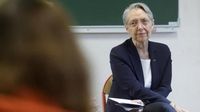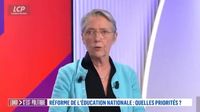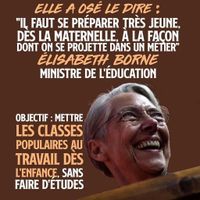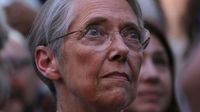On April 8, 2025, Elisabeth Borne, the French Minister of National Education, sparked a significant conversation about early career orientation when she stated that children should begin contemplating their professional futures almost from kindergarten. During an interview on LCP, she emphasized the need for students to prepare very young, asserting that this early reflection on their career paths is essential for success in today's educational landscape.
"Il faut se préparer très jeune, dès le départ, presque depuis la maternelle, à réfléchir de la façon dont on se projette dans un métier," Borne remarked, underscoring her belief that the current education system must adapt to better prepare students for the workforce. This statement has drawn both support and criticism, igniting debates about the implications of such a policy.
The historical context of child labor laws in France adds a layer of complexity to Borne's comments. The employment of minors under 14 was prohibited only in 1919, and the first law concerning workers' pensions was enacted in 1910, with a genuine right to retirement established in 1945. Critics argue that Borne's push for early professional orientation echoes a troubling regression to a time when children from lower-income families were forced into labor without the opportunity for education.
Since her appointment to the Ministry of Education on December 24, 2024, Borne has been at the center of ongoing reforms. The Ministry oversees 1.2 million agents, including 713,500 public school teachers, making it the largest public employment sector in France and the most significant part of the state budget. However, her tenure has been marked by controversy, particularly regarding her approach to education reform.
In her previous roles, Borne has made headlines for her use of Article 49.3, which allows the government to pass legislation without a parliamentary vote. She has invoked this mechanism 23 times in just a year and a half, prompting accusations of authoritarianism as she pushes through what many consider detrimental social reforms.
In the wake of Borne's recent comments, many parents and educators have expressed concern. The idea of having young children contemplate their future professions has led to humorous yet pointed reactions on social media. Parents shared their children's whimsical career aspirations, such as wanting to be a "pâtissier-magicien" (pastry chef-magician) or "maman dinosaure" (dinosaur mom), highlighting the absurdity of expecting kindergarteners to make serious career decisions.
One parent quipped, "Élisabeth Borne a raison : mon fils veut faire 'pâtissier-magicien'. Il faut donc développer cette filière à la fac," while another asked, "Ma fille veut être reine des neiges. C’est quoi la filière svp?" These lighthearted comments underscore a serious concern: that the government is pushing children into rigid career paths without considering their developmental needs.
Moreover, the recent history of educational reforms in France has raised alarms. Since 2009, successive governments have promoted the professionalization of minors, allowing contracts for 16-year-olds in sectors perceived as having labor shortages, such as construction and hospitality. Critics argue that this approach effectively channels lower-income youth into low-paying, labor-intensive jobs, limiting their educational opportunities.
On March 31, 2022, President Emmanuel Macron stated that all children would explore various trades, including technical and manual jobs, from middle school. This policy has been criticized for perpetuating socioeconomic divides, as children from wealthier backgrounds often have access to internships in prestigious fields, while those from less affluent families are directed toward hazardous and exhausting work.
Elisabeth Borne's comments have also reignited discussions about the Parcoursup platform, which manages higher education admissions in France. This year, nearly one million young people are registered on Parcoursup, with around 200,000 seeking reorientation. Borne has argued that the issue of career orientation should not be confined to the moment students fill out their Parcoursup choices, advocating for a system that supports students throughout their educational journey.
Despite her insistence on improving the platform, her critics, including François Bayrou, have voiced skepticism about the efficacy of Parcoursup, particularly regarding its impact on early career orientation. Bayrou lamented a "two-speed education" system that favors students from well-connected families, further entrenching social inequalities.
As Borne pushes for reforms that prioritize early career planning, many fear that the focus on workforce readiness may undermine the quality of education. The potential for a two-tiered educational system, where only the privileged access higher education, looms large. Borne's call for early professional orientation raises questions about the future of education in France and the values that underpin it.
In conclusion, while the intention behind Borne's remarks may be to prepare students for a changing job market, the implications of such policies warrant careful consideration. As the debate unfolds, the challenge will be to balance the needs of the economy with the rights of children to a comprehensive and enriching education.








